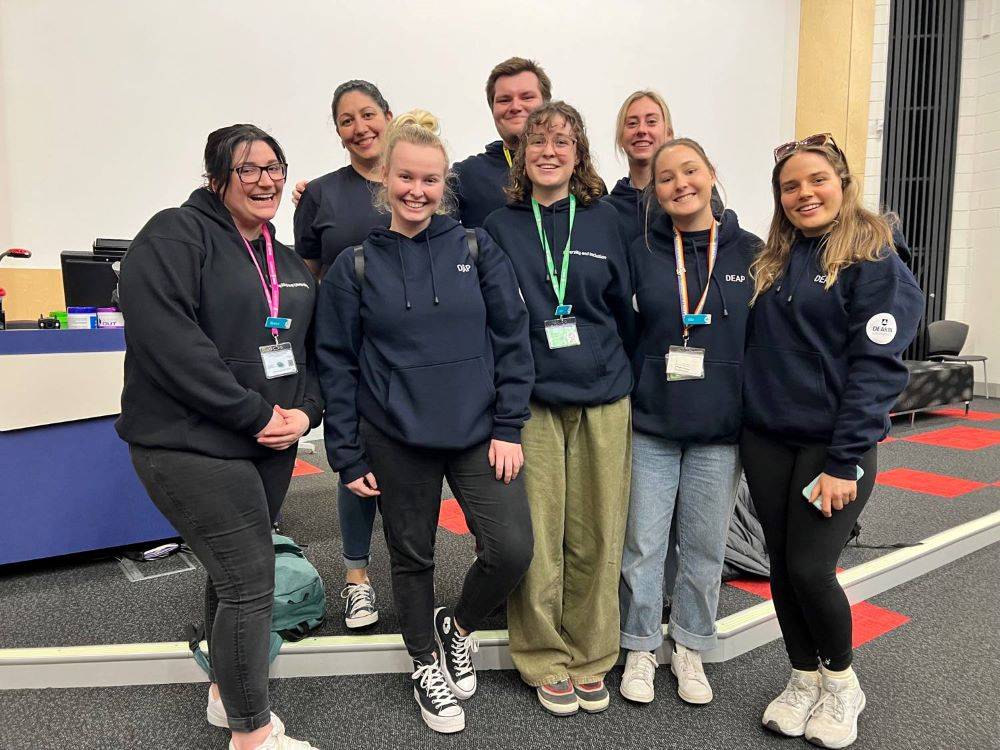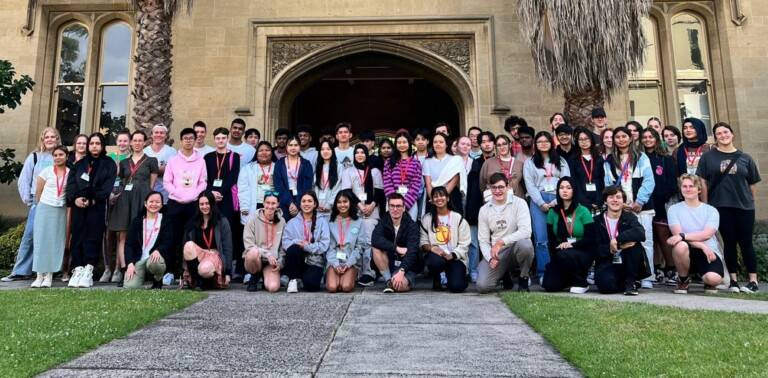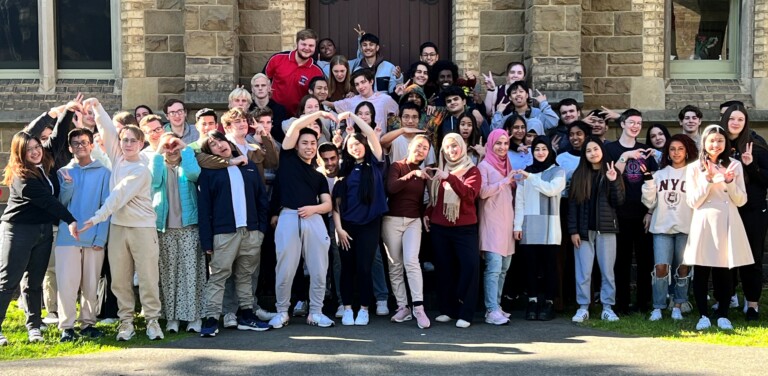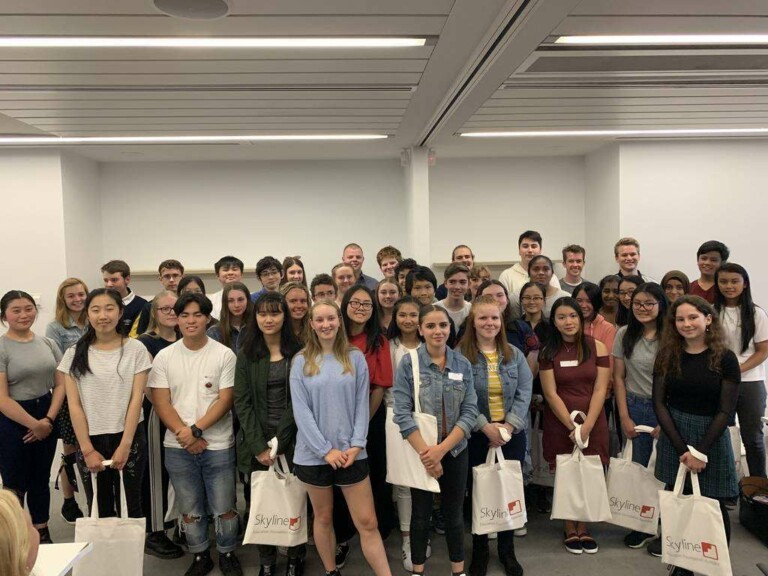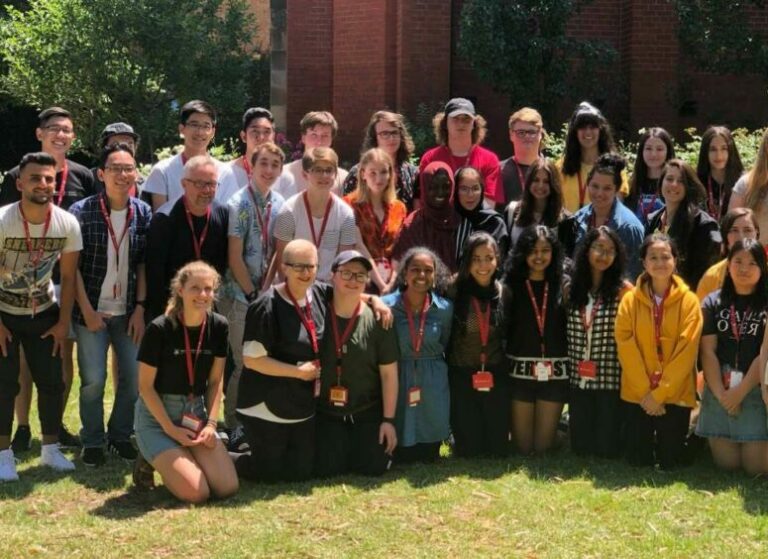Modern Mentoring
– Dr Elizabeth Hartnell-Young
Mentoring has a long history, always with the purpose of connecting experienced people with those who are keen to develop particular knowledge and experience, to learn from and share with them. People of all ages and career stages value a mentoring relationship, and these relationships occur in many ways, from a buddy system in primary school, to a highly organised large-scale program like Big Brothers, Big Sisters Australia (https://bigbrothersbigsisters.org.au) or a workplace mentoring scheme.
Mentoring has benefits for all parties, including increased self-confidence and self-awareness, leadership and communication skills, exposure to new and different perspectives, a wider personal network and Increased job satisfaction. Mentees (those being mentored) can benefit from gaining access to role models they might otherwise not meet, and having an advocate who supports them, often resulting in reduced anxiety.
Mentoring at Skyline
Within the Skyline program, mentoring links Students, Alumni, and organisations in various ways, both short and long term. Our VCE students tell us they appreciate having a mentor when preparing for transition beyond school. And the benefits work both ways.
One Alumna valued the opportunity to act as a mentor for the week of the Skyline 2022 Residential. She reflected:
I was given the amazing opportunity to become a mentor for the 2022 and 2023 cohort of Skyline students by leading them through various activities and generally becoming a source of wisdom and advice as they asked me about VCE (something I had gone through the trenches of last two years during COVID-19!) I was also able to reconnect with some of my 2021 Skyline cohort after seeing them only through the Zoom camera during many of our online masterclasses through VCE! I was also invited to be on a panel as a recent VCE graduate to talk about my experiences through Melbourne’s numerous COVID-19 lockdowns. It was a wonderful experience especially as students came up to me after the panel session to ask for my advice and tips to ‘survive’ VCE. It was honestly one of the best experiences I’ve had as a Skyline Alumna and I look forward to what the next cohort has to bring to the world!
During his VCE, one Student found while Skyline’s financial support was invaluable, it was the life-changing social support through networks and mentors that opened more opportunities than he ever imagined possible. He wrote ‘I was able to develop from a socially awkward individual who constantly fears failure to becoming a more socially active and confident Student who continuously seeks to take on leadership roles within the school community, speaking in conferences and beyond’.
Skyline is also keen to connect students and alumni with professionals in their workplaces. For example, in a partnership with law firm Lander & Rogers, internationally-recognised Staff have mentored Skyliners interested in pursuing legal careers, ensuring first-hand insights into the sector.
Research shows benefits of mentoring
Research has shown the positive effects of mentoring programs. In a meta-analysis of 70 outcome studies of intergenerational, one-on-one youth mentoring programs over 40 years with a sample size of over 25000 young people, researchers found a statistically significant effect of mentoring programs across all youth outcomes (Raposa et al., 2019). They suggest that one-on-one, caring relationships with adults are particularly beneficial as a low-cost intervention with the potential to reach large groups of youth at risk, while they caution that the quality and rigour must be maintained.
Mentoring can connect young people with a wide network within and beyond their community, although results can vary due to mentors’ individual personalities and ways of working. A US study of over 700 diverse young people (Austin et al., 2020) identified three mentor profiles:
- Status Quo Mentors, who reported low-to-moderate levels of closeness within the mentor–mentee dyad, low levels of connecting their mentees with programs and people in their community, and low levels of mediating for their mentees;
- Close Connectors, who reported moderate-to-high levels of closeness, moderate-to-high levels of connecting, and low levels of mediating; and
- Connector-Mediators, who reported moderate levels of closeness, connecting, and mediating.
The research found that young people mentored by Close Connectors demonstrated the greatest benefit, with significant improvements in parent–child relationship quality, extracurricular activity involvement, and help-seeking.
It is likely that mentoring benefits a wider community around the mentee. Having a trusted adult in one’s life can be a key support to young people but there is less understanding of the capacity of such programs to contribute to community-building and skill-building among the mentors. A qualitative study of 15 mentors in an Australian youth mentoring program for high school students examined mentors’ perceptions of the capacity of the program to help cultivate supportive communities for young people, beyond those specifically mentored. The findings show that, with some limits, mentors perceived that the program built their capacity to better support young people in the future – including young people beyond the program participants – such as those in their families, personal communities, workplaces and other volunteering contexts (Melzer & Saunders, 2020).
Formal and informal mentoring
Some mentoring relationships develop informally, (think ‘The wind beneath my wings’) while others, like those described above, are more structured. Unfortunately, many young people do not have access to a wide network of potential mentors with experience in their desired areas, so informal, organic relationships cannot develop. Youth initiated mentoring (YIM) is a hybrid approach that empowers young people to identify and recruit natural mentors, potentially combining the strengths of informal mentoring relationships with the infrastructure and support provided by formal mentoring programs. YIM programs assist young people to identify, and develop natural mentoring relationships rather than assigning a mentor (van Dam et al., 2021). A meta-analytic review examined the association between youth-initiated programs and youth outcomes across four domains: academic and vocational functioning, social-emotional development, physical health, and psychosocial problems. The programs tended to be targeted to specific issues (eg mental health, or violence). Results indicated that youth-initiated programs are significantly associated with positive youth outcomes. The skills developed in such a relationship are likely to have long term benefits.
Being a mentor
Being a mentor can be hugely rewarding, and clearly an important aspect of mentoring is getting to know and understand the mentee. While training is often provided to mentors and mentor pairs, mentors are certainly not expected to be all things to all people and should be aware of their limitations. In the Australian study, mentors gained insights into supporting young people with a range of more serious issues, such as mental illness, domestic violence, abuse or neglect, and substance abuse. Mentors felt there was more for them to learn. However, in most cases, when concerned about a mentee’s wellbeing, they should refer to other supports, as occurs through Skyline.
Michelle Redfern, an Australian Diversity, Equity & Inclusion Consultant says ‘Great mentors and strategic mentoring programs ensure that the mentees’ needs are aligned with their goals as well as the organisational objectives.’ She cautions that mentors avoid becoming a pseudo counselling service, or a substitute manager. ‘Their role is to help mentees close skill gaps, not manage performance issues’. She also recommends that mentors hold mentees accountable for doing the ‘heavy lifting’ in the relationship, such as meeting management, preparation and follow up.
References
- Austin, L., Parnes, M., Jarjoura, R., Keller, T., Herrera, C., Tanyu, M., & Schwartz, S. (2020). Connecting Youth: The Role of Mentoring Approach. Journal of Youth and Adolescence, 49, 2409-2428. doi:https://link.springer.com/article/10.1007/s10964-020-01320-z
- Melzer, A., & Saunders, I. (2020). Cultivating supportive communities for young people – Mentor pathways into and following a youth mentoring program. Children and Youth Services Review, 110. Retrieved from www.elsevier.com/locate/childyouth
- Raposa, E., Rhodes, J., van Stams, G., Card, N., Burton, S., Schwartz, S., . . . Hussein, S. (2019). The Effects of Youth Mentoring Programs: A Meta-analysis of Outcome Studies. Journal of Youth and Adolescence, 48, 424-443. doi:https://doi.org/10.1007/s10964-019-00982-8
- Van Dam, L., Blom, D., Esma, K., Assink, M., van Stams, G., Schwartz, S., & Rhodes, J. (2021). Youth Initiated Mentoring: A Meta-analytic Study of a Hybrid Approach to Youth Mentoring Journal of Youth and Adolescence, 50, 219-230.

